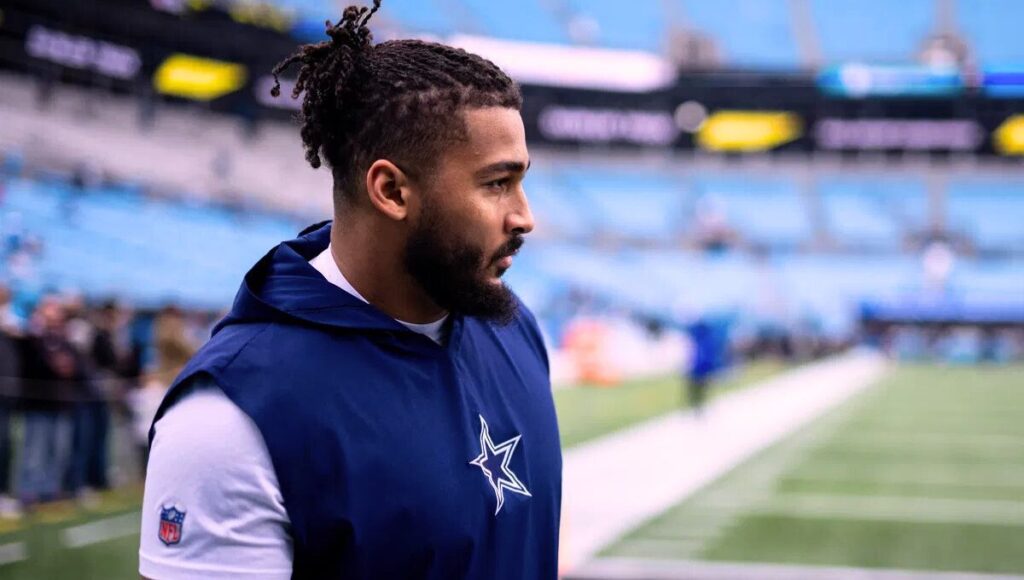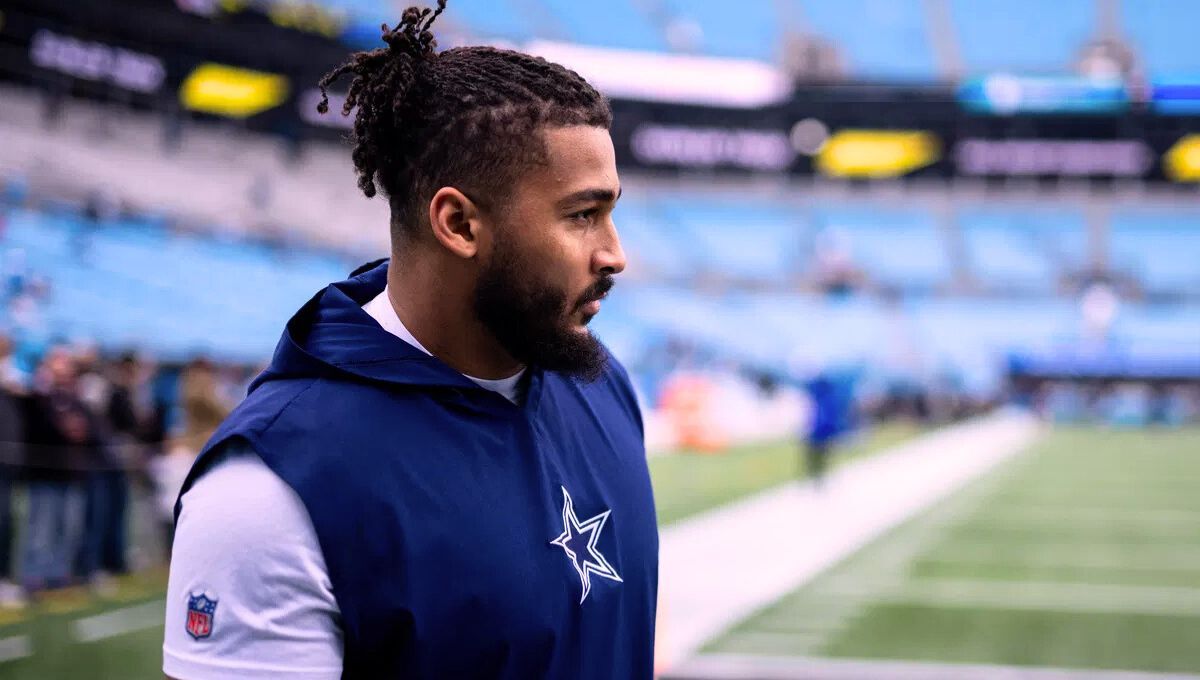
Marshawn Kneeland cause of death
It’s the kind of whiplash that’s impossible to process. Just days ago, many of us watched Dallas Cowboys defensive end Marshawn Kneeland live out a dream on “Monday Night Football.” We saw him score his first career touchdown, a massive, game-changing moment for any NFL player.

Today, we are forced to reconcile that image of triumph with a reality that is dark, confusing, and utterly heartbreaking of Marshawn Kneeland cause of death.
The NFL world is in shock, grappling with the news that the 24-year-old rising star is gone. But as the headlines fly by, simply reporting the “what” feels like a disservice. To truly understand, we have to look at the man behind the helmet, a young man who, it turns out, was fighting an unseen battle of profound grief.
A Final, Tragic Night
Let’s start with what we know, based on the official reports from law enforcement in Texas. The search for “Marshawn Kneeland cause of death” leads to a confirmed, tragic answer: officials have stated he died from a self-inflicted gunshot wound.

The events unfolded in a frantic and heartbreaking timeline on the night of November 5th. It began shortly after 10:30 p.m. when Texas Department of Public Safety troopers attempted to stop Kneeland’s vehicle for a traffic violation. A pursuit began, but troopers soon lost sight of the vehicle.
Minutes later, Kneeland’s car was found crashed and abandoned in Frisco. A multi-agency search began, using K9 units and drones. During this search, a chilling piece of context emerged: officers received information that Kneeland had “expressed suicidal ideations”.
At 1:31 a.m. on Thursday morning, they found him. Marshawn Kneeland was pronounced dead at the scene.
The Grief He Carried-Literally
How does this happen? How does a person go from the pinnacle of professional sports to such a place of despair?

While we may never know the full story, the past year of Kneeland’s life offers a window into the immense private burden he was carrying. This wasn’t just an NFL player; this was a grieving son.
Back in February 2024, just days before the NFL Combine the biggest job interview of his life—Kneeland’s mother, Wendy, died suddenly.
He chose to “keep it under wraps,” not wanting to make it part of his story. He told reporters at the time, “It was tough, it still is, but I know at the end of the day the thing that gets me through it is she spent all her life trying to. get me to the NFL”.
He didn’t just carry her memory. In a poignant and powerful symbol of his loss, Kneeland carried a small urn with his mother’s ashes with him at all times.
Think about that for a second.
This 24-year-old was navigating the brutal, high-pressure world of the NFL, putting on a helmet and pads, while literally carrying the physical weight of his grief. He was a son who had lost his biggest supporter but was still trying to “lock in” and make her proud. It’s a compelling, heartbreaking analogy for a pain that was simply too heavy to bear.
Shattered” and “Heartbroken”
The man his teammates and coaches knew wasn’t a tragedy; he was a light. His agent, Jonathan Perzley, who called Kneeland his “dearest friend,” was “shattered” by the news. “I watched him fight his way from a hopeful kid at Western Michigan… to being a respected professional,” Perzley said. “To lose someone with his talent, spirit, and goodness is a pain I can hardly put into words”.
His college coach at Western Michigan, Lance Taylor, was equally devastated. “My heart is absolutely broken,” Taylor said, describing Kneeland’s “infectious… energy and smile” and a “special bond that went far beyond football”.
The Dallas Cowboys organization, in its official statement, called him a “beloved teammate” and extended its prayers to his family and his girlfriend, Catalina.

